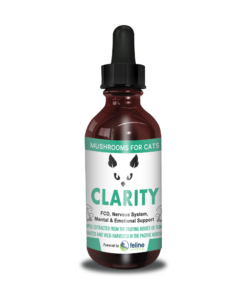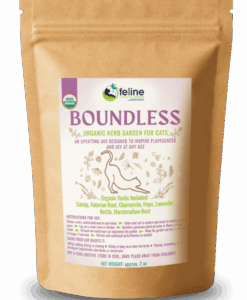The concept of “prescription diets” for cats is becoming the norm in many veterinary clinics. From urinary tract health to weight management, there seems to be a specialized diet for nearly every ailment our kitties might encounter. But are these prescription diets truly the best option for our cats, long-term?
I guess the first question that we should ask would be why these special diets require a prescription in the first place.
According to Cailin Heinze, a veterinary nutritionist, “veterinarians must prescribe certain therapeutic diets because, depending on the disease being addressed, these foods may contain levels of nutrients below what is legally allowed to be sold for a healthy pet without that medical condition.“
So this means that these prescription diets for cats:
- May not complete and balanced according to AAFCO guidelines to meet an average cat’s nutritional needs.
- Should not be fed to other cats in your home that are not dealing with a medical condition.
Did your vet tell you that? If not, this is an important question to ask them. But here’s the thing: If the prescription diet is not balanced for a healthy cat – but it supposed to make your cat healthy – shouldn’t you discontinue the food at some point?
Let’s take a quick look at the ingredient lists of two popular veterinarian prescribed diets:
Hill’s Science Diet Prescription Diet Feline c/d Multicare Urinary Care Dry Cat Food: Chicken, Whole Grain Corn, Corn Gluten Meal, Whole Grain Wheat, Brewers Rice, Pork Fat, Chicken Meal, Egg Product, Pork Flavor, Soybean Oil, Fish Oil, Lactic Acid, Calcium Sulfate, L-Lysine, Potassium Chloride, Choline Chloride, DL-Methionine, Potassium Citrate, vitamins (Vitamin E Supplement, L-Ascorbyl-2-Polyphosphate (source of Vitamin C), Niacin Supplement, Thiamine Mononitrate, Vitamin A Supplement, Calcium Pantothenate, Riboflavin Supplement, Biotin, Vitamin B12 Supplement, Pyridoxine Hydrochloride, Folic Acid, Vitamin D3 Supplement), Taurine, minerals (Ferrous Sulfate, Zinc Oxide, Copper Sulfate, Manganous Oxide, Calcium Iodate, Sodium Selenite), Iodized Salt, Mixed Tocopherols for freshness, Natural Flavors, Beta-Carotene.
Royal Canin Veterinary Diet Urinary SO Dry Cat Food: Brewers Rice, Chicken By-Product Meal, Corn Gluten Meal, Corn, Chicken Fat, Natural Flavors, Soy Protein Isolate, Powdered Cellulose, Salt, Fish Oil, Potassium Chloride, Sodium Bisulfate, Vegetable Oil, DL-Methionine, Fructooligosaccharides, Choline Chloride, Calcium Sulfate, Vitamins [DL-Alpha Tocopherol Acetate (source of Vitamin E), Biotin, Niacin Supplement, Riboflavin Supplement, D-Calcium Pantothenate, Pyridoxine Hydrochloride (Vitamin B6), Vitamin A Acetate, Thiamine Mononitrate (Vitamin B1), Vitamin B12 Supplement, Folic Acid, Vitamin D3 Supplement], Taurine, Trace Minerals [Zinc Proteinate, Zinc Oxide, Ferrous Sulfate, Manganese Proteinate, Manganous Oxide, Copper Sulfate, Calcium Iodate, Sodium Selenite, Copper Proteinate], Marigold Extract (Tagetes Erecta L.), Rosemary Extract, Preserved with Mixed Tocopherols and Citric Acid.
If you’re not well-versed in reading cat food ingredients, these diets contain very little (if any) animal protein. Because cats are obligate carnivores, I see why these diets aren’t approved to be legally sold to household cats without a health condition. They will simply waste away and suffer from severe nutritional imbalances. And we don’t want to do that to our family members.
So how long should we feed prescription diets for cats?
THIS is the most important question one should ask their vet when agreeing to a prescription diet for their kitty. Just like a prescribed medication has a time limit and requires a recheck at the vet – so should prescription diets. The purpose of feeding a therapeutic, potentially unbalanced diet is to resolve a health condition. This means that your veterinarian should be asking you to come back in a certain period of time to see if the prescription is working. If not, you and your vet should seek plan B. If so, then the prescription did it’s job and you can start slowly moving your cat to a more balanced, species appropriate diet – so that they don’t suffer from the effects of an unbalanced diet as a, now, “healthy cat”.
It’s up to us – the responsible advocate for our cats – to ask the questions, do the research and then decide what diet is best suited for our fur families.




Recent Comments